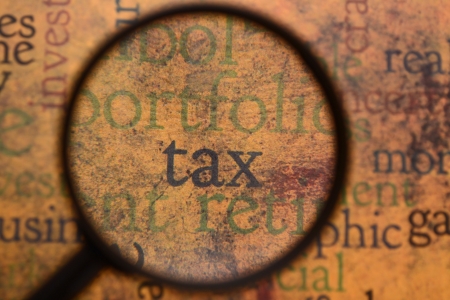Knowing the tricks when it comes to your small business tax return can be a game changer.
 Everyone has to file a tax return, and your small business is no exception. But if you’re like most people, the thought of doing taxes can make your eyes glaze over. The trick is learning the best tips for tax prep. Read on for the absolute must-know tips about filing a tax return for your small business.
Everyone has to file a tax return, and your small business is no exception. But if you’re like most people, the thought of doing taxes can make your eyes glaze over. The trick is learning the best tips for tax prep. Read on for the absolute must-know tips about filing a tax return for your small business.
Tip #1: Understand Your Business
This might seem like a no-brainer, but the truth is, if you don’t know your business and all of the financial information that makes it tick, it’s going to be hard to do your taxes, and to do them correctly. Having an intimate understanding of your books, finances, investments, inventory, overhead and payroll is essential to getting your taxes right.
Tip #2: Keep Accurate Records
Nothing is more important than keeping accurate financial records. Your profit and loss statements are vital information to help you estimate your tax liability, understand your available deductions, and prove your expenses. Not only is this information critical to getting your taxes right, but it’s what will help you make sound financial decisions throughout the year.
Tip #3: Keep Accurate Records Throughout the Year
Don’t be a last-minute tax information gatherer. Scrambling to pull together receipts, expenses and income information is a bad way to run your business. It’s also super stressful. If you keep accurate records throughout the year and don’t try to pull it all together at tax time, not only will it make the whole process less painful, but it will also ensure accuracy. And accuracy can help you avoid an audit, or in the event of an audit, will make sure you’re covered because you did it all right.
Tip #4: Understand Your Expenses
When you’re running a small business, it can be easy, and even tempting, to intermingle your personal expenses and your business expenses. They all seem to run together sometimes, especially if you’re just getting started or you’re running a home-based business.
If you take improper deductions, you could end up paying the price via an audit. Don’t take questionable deductions. This includes improper home-office deductions, travel expenses, food and per diem costs, and equipment investments.
Tip #4: Classify Your Employees Correctly
It’s tempting to classify all of your employees as independent contractors. Although this can save money on taxes, benefits, etc., there are labor rules in place for a reason. These rules differentiate one type of worker from another, and it’s important to make sure you classify your employees correctly. If you don’t, and the IRS discovers the discrepancy, you could be assessed back taxes. You also may have to pay a penalty.
Tip #5: Hire a Small Business Accountant
Now that you have an idea of what’s important when it comes to filing your small business taxes, you can imagine how beneficial it would be to have a small business accountant in your corner. Here’s what they can do for you, not only at tax time, but year-round:
- Manage and record all of your financial information;
- Create reports and financial analysis to help you make informed business decisions and to help guide you when it comes to filing your taxes;
- Provide knowledge of tax laws and how they affect you;
- Offer guidance when it comes to deductions and what you can and cannot take legitimately; and
- Perform tax preparation and filing based on the information they’ve kept for your business throughout the year.
No matter how you look at it, managing your financial information correctly throughout the year is the best way to make your tax preparation easier. Learn more about how small business accounting services can help you with your tax return, and download a free report on maximizing your use of QuickBooks now.

